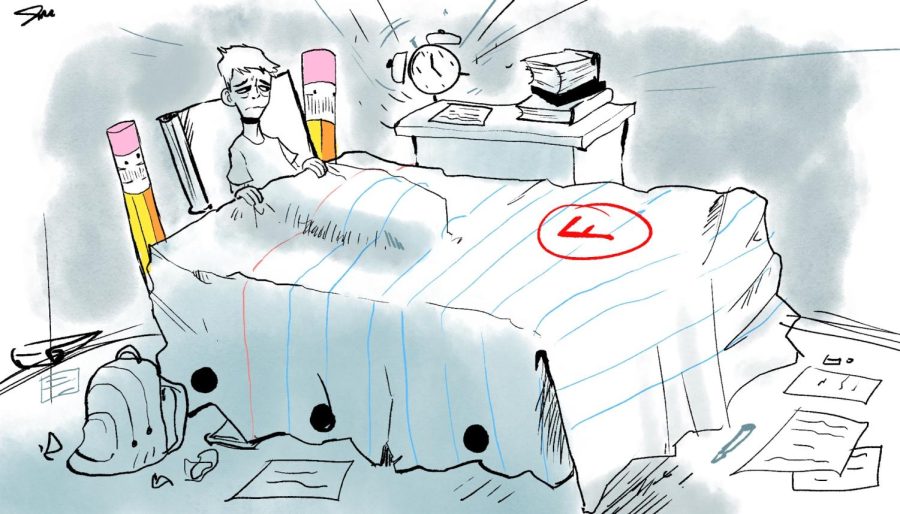Sleep plays significant role in academic success, decision-making
September 8, 2018
Attending classes, participating in student organizations, studying for exams and working jobs.
For college students, managing these priorities often means losing out on sleep. 60 percent of college students report not getting enough sleep every night, according to a 2014 study published by researchers at the University of Alabama.
However, a lack of sleep can contribute to academic and health issues, said biological science professor Eric Mintz. Sleep deprivation reduces a student’s ability to learn and retain information.
“We consolidate memories when we sleep,” Mintz said. “If you’re very tired and you’re trying to learn, it’s very difficult to retain those memories.”
Research shows a strong connection between sleep patterns and academic performance. A study published in August 2018 by. Monica Hartmann and J. Roxanne Prichard of the University of St. Thomas in St. Paul, Minnesota, found sleep problems to be a critical indicator of academic issues.
According to the study, “sleep disturbances were found to be a significant independent predictor of academic problems; on average, each additional day per week that a student experienced sleep problems raised the probability of dropping a course by 10 percent and lowered the cumulative GPA by 0.02.”
Other factors associated with poor academic performance, such as binge drinking, stress and illicit drug use are equally or less influential than sleep disturbances.
Sleep deprivation also weakens the immune system, which makes students more susceptible to sickness, Mintz said.
Researchers believe the interaction between sleep deprivation and the immune system could contribute to neurodegenerative diseases and worsen learning disabilities, Mintz said.
“Even things like cancer can be affected by sleep deprivation,” Mintz said. “It’s not like the sleep deprivation makes you get cancer, but it makes your body’s response to that sluggish.”
An insufficient amount of sleep can negatively influence a person’s judgement, as well as their ability to make decisions, said Colleen Novak, an associate professor of biological sciences.
Studies show basic brain functions like decision-making are “not optimal when you have sleep deprivation,” and that sleep deprivation impacts people even if they feel OK, Novak said.
“Our feelings don’t really match up with function,” Novak said. “Your function is still compromised.”
Although personal and academic obligations can make it difficult for college students to get enough sleep every night, they can take measures to combat sleep deprivation.
Students can improve their sleep by practicing a series of habits meant to increase sleep quality, known as “sleep hygiene,” said Jeffrey Ciesla, an associate psychology professor,.
Some common sleep hygiene practices include exercising regularly, having a consistent wake up time and staying away from cellphones and bright screens before bed, Ciesla said.
Additionally, students should limit the amount of time they spend napping. While naps can help students catch up on sleep they missed, taking them on a regular basis to make up for a poor sleep schedule is not in their best interests.
“Doing that regularly as a way to patch up a bad sleep practice is not a good thing,” Ciesla said. “You’re training the body to only get four hours of sleep because “I’ll pick it up later.”
Some people also have a tendency to view lack of sleep as a measure of success and boast about their ability to function on a small amount of it.
“It’s almost like a badge of pride on how little sleep you can get,” Novak said.
However, infrequent sleep is unhealthy, and people should acknowledge the importance of a consistent sleep schedule and make it a bigger priority in their lives.
“But we aren’t functioning well,” Novak said. We don’t drive as well. We don’t think as well. We don’t perform as well. We don’t make good judgement calls in that state.”
Paige Bennett is a science reporter. Contact her at [email protected].












